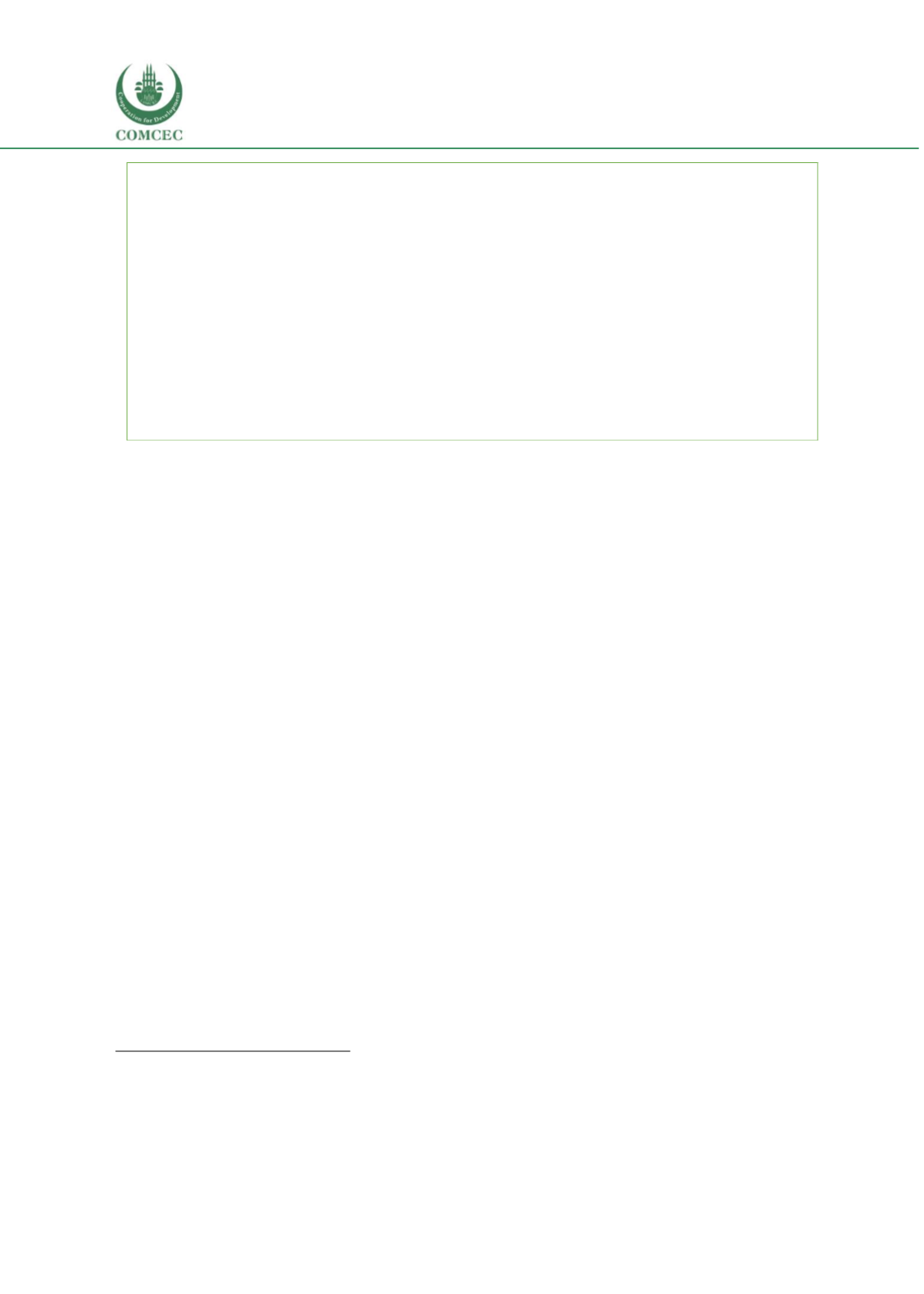

Education of Disadvantaged Children in OIC:
The Key to Escape from Poverty
80
Cost of schooling:
According to a recent survey, the “most important reason for dropping out of
Grade I were parents' limited financial means (21 percent)”
230
, representing one-fifth of grade 1
drop-outs. While compulsory formal education is officially free of fees, there are additional costs,
such as textbooks and transport to school, that impede access to schooling in Senegal. In addition,
given that over 90% of the expenditures in education go towards teachers’ salaries, schools often
resort to collecting some fees in order to guarantee a minimum level of quality in functioning (in
fact according to government policy in primary education no fees should be paid by families). Such
fees constitute a burden for poor families.
Education System Governance
Governance:
As seen in section 1.1 and 1.2., Senegal has decentralised some of its education
responsibilities and services. While the government strategy for the sector is holistic, the
implementation often remains in silo with little coordination amongst relevant agencies and even
within departments.
Monitoring, accountability and management.
One of the main supply-side challenges are the
inadequate accountability mechanisms across the administrative tiers and low levels of
community participation in school management (despite the existence of school management
communities). As seen in section 2.1, completion rates remain low and learning outcomes are
poor, as gauged by national assessments and studies such as PASEC and Jangandoo
231
. Such poor
outcomes, especially in light of the high budget investments in the sector, are a result of a system
that is input-oriented rather than results-oriented. The 2010 Service Delivery Indicator
(SDI)
232
,
233
Survey highlighted weak accountability mechanisms in terms of teacher absenteeism
(29%) and competencies (only 52% of teachers with minimum knowledge), school environment
230
WB (2012) report
231
Jangadoo 2016 LARTES/IFAN
232
http://siteresources.worldbank.org/AFRICAEXT/Resources/SDI-Technical-Report-Senegal.pdf233
WB (2010) SDI survey in Education and Health ---
http://www.sdindicators.org/senegal-educationThe policy response.
On June 30, 2016, President Macky Sall ordered all street children to
be picked up and placed in reception centres and then returned to their parents. Since then,
hundreds of children have been taken out of the streets and the number of abusive marabout
arrests has increased.
These measures are unfortunately insufficient because the laws against begging are very
poorly applied but also because the traditional and religious characteristics that push parents
to send their children to the Daraas do not allow this practice to be put to an end. This is why
many children's rights associations are fighting for a framework for the Koranic school
system, with frequent inspections of schools to ensure that they comply with universal norms
and above all to ensure that the rights of children are respected. The latest draft of National
Social Protection Strategy (dated Nov. 2016) will include specific measures to combat the
phenomenon.
















